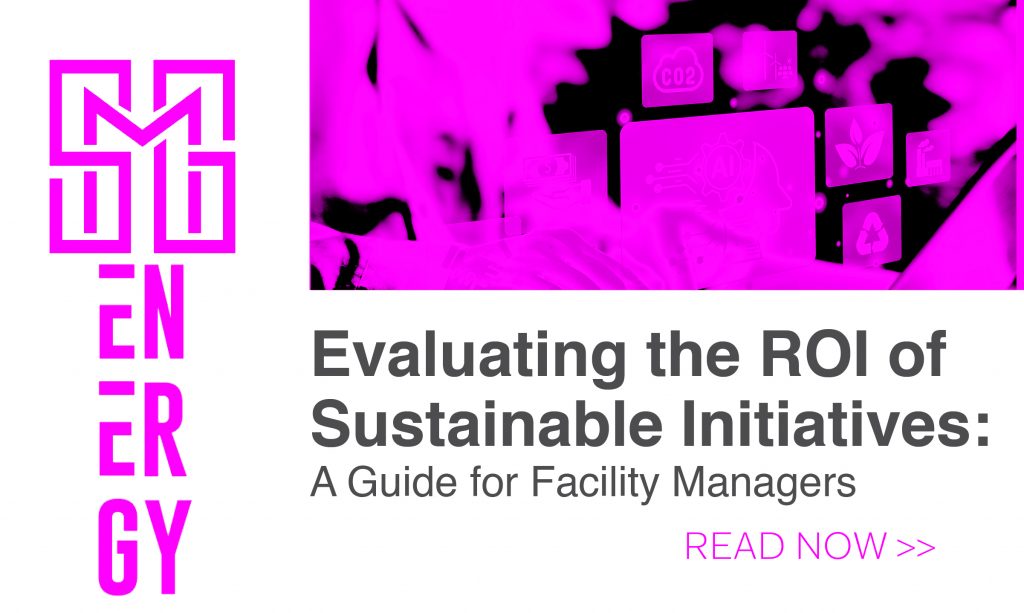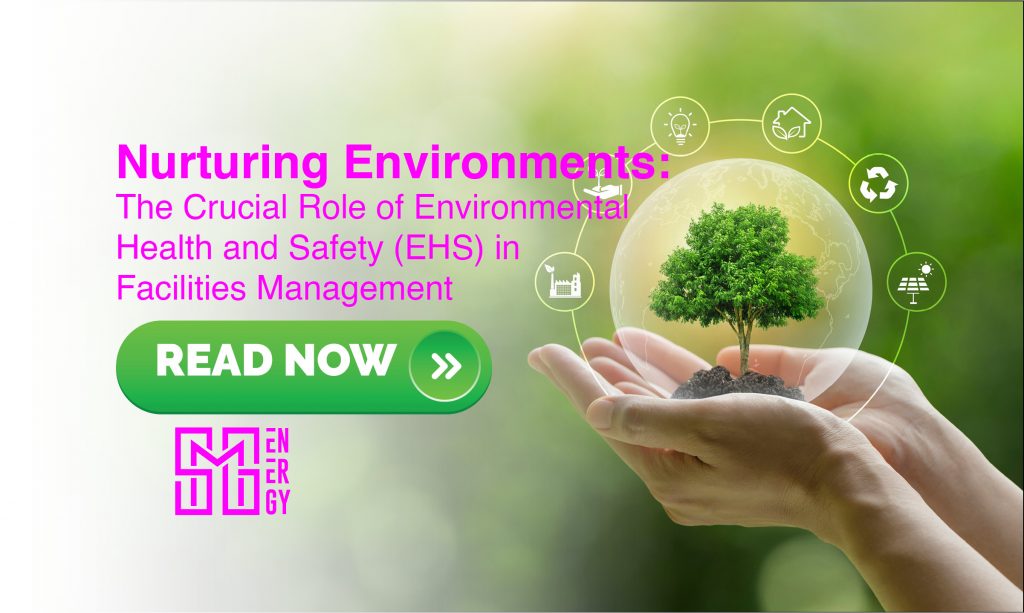Sustainability continues to grow in importance as large multi-site companies recognize that doing good by the environment is also good for business. Businesses are regularly integrating environmental and corporate social responsibility (CSR) goals into their governance, while investors are increasingly seeking out new opportunities to fund companies with strong commitment to sustainability and the planet. Both sides realize the greater returns that socially responsible organizations deliver through cost reduction, improved operational resiliency, and positive brand sentiment and revenue potential.
Sustainable businesses undoubtedly have an incredible competitive advantage, but exactly what does it mean to for a multi-site company to be sustainable? How can companies embrace a more sustainable business model? This article explores those questions and presents several key sustainable business practices for energy use that can get companies closer to their sustainability goals.
What is Business Sustainability?
On a high level, sustainability refers to optimizing business operations to minimize negative impacts on the environment and society.
A sustainable business considers economic, social, and environmental factors as part of all business decisions. It monitors the impact of its actions to ensure it is responsible and that the quest for short-term profits isn’t resulting in long-term liabilities like inequality, environmental destruction, or negative social impacts.
Examples of business sustainability include:
- The use of alternative energy sources and carbon accounting to improve a company’s energy management.
- Reducing emissions, reducing water use, and controlling waste through new or improved infrastructure.
- Requiring supply chain stakeholders to implement sustainability practices that empower a circular economy, reduce waste, minimize resource consumption, and protect nature.
- Assessing risks and improving resiliency while adhering to development goals and regulations.
The goal is maintaining or even increasing profitability while fostering social good through sustainable business practices.
As consumers and investors become more in tune with environmental impacts, they demand that companies they buy from or invest in work toward solving sustainability issues in business. A McKinsey Global Survey shows that 83% of investors believe that attention given to environmental, social, and governance (ESG) programs generates shareholder value. Accenture’s research on responsible leadership has found that companies rating high for ESG performance see operating margins much higher than low ESG performers, up to 3.7 times higher.
The advantages of responsible and sustainable business practices create environmental and financial benefits that any company can get behind.
What are the Benefits of Business Sustainability?
The world has become unpredictable. Overuse of natural resources, increasing demands for energy and food, and climate change contributes to business operations and supply chains disruption. Organizations must rethink how they function – transforming into sustainable businesses requires heightened agility and resilience based on responsible practices.
Sustainability concerns are ethical and financial, and mandating sustainability as a core business practice should be included in all business strategies, operations and the broader ESG initiatives. The ethical and financial reasons for sustainability include:
- Employees want to work for purpose-led employers that state their concern for the state of the planet and then act. A 2022 IBM survey found 67% percent of respondents were more willing to apply for jobs with sustainable companies, and 68% were more willing to accept positions with those companies.
- Consumers increasingly want to buy from brands that are environmentally responsible, and they are willing to pay a premium for socially responsible goods and services.The same IBM survey reported that nearly half of the respondents stated that socially responsible products made up at least half of their last purchases and were willing to pay up to 59% more for those products.
- Investors are demanding that companies take accountability and behave in a socially responsible manner, including taking action to combat climate change. ESG as an investment criterion is attractive to investors that want to reward sustainable companies and realize the more significant investment returns produced by ESG firms.
Multi-site Businesses that embrace sustainability benefit from the following:
- A competitive advantage: As consumers increasingly choose sustainable brands first, companies known as sustainable benefit from increased brand awareness and attract customers that prioritize sustainability. They have a distinct advantage over their competitors.
- Investor interest: Investors look for ESG companies to invest in, increasing company share values and reducing borrowing costs.
- Regulatory compliance: Governments will only continue to expand environmental regulations. Businesses that continually grow their sustainability initiatives stay ahead of new regulatory requirements to measure and report on their ESG performance.
- Business resilience: Sustainable transformations build resilient businesses ready for new opportunities and disruption.
- Attract talented employees: As employment seekers prioritize working for sustainable businesses, firms attract and retain the best employees when they practice social responsibility.
- Revenue growth: Reducing resource consumption, improving operational efficiencies, and attracting more customers improves the bottom line. While improvements have upfront costs, they produce great returns.
How Can Multi-Site Businesses be More Sustainable?
Sustainability starts with a strategy to operate responsibly at scale. Companies don’t have to roll everything out at once – a plan includes benchmarks, decision points, and ongoing measurements of rollout success.
The plan for advancing business sustainability must ensure that stakeholders have an agreed-upon vision for the future of a more sustainable business. However, it can be difficult for businesses to develop an actionable strategy to reach their sustainability ambitions.
Increasingly, businesses looking to bolster sustainability are turning to expert advice to provide actionable strategies to improve efficiency and integrate sustainable practices. Those experts can identify the challenges and opportunities from an external viewpoint and explain how past strategies have worked for other organizations. Outside experts formulate a time bound framework for the implementation of sustainability initiatives. By turning to a sustainability and energy consultancy for expert guidance, businesses can develop actionable strategies to hit their most ambitious sustainability goals.
A component of any ESG plan and perhaps the lowest hanging fruit includes reducing energy use that contributes to carbon emissions and climate change. We see the impacts of global warming constantly and have to reverse a very troubling trend that threatens our younger generations.
Addressing energy sustainability in business includes two strategies:
- Energy management to reduce energy usage with knowledge of how energy is being used across a distributed portfolio and seeking out new energy usage efficiencies and smart technologies or encouraging team members to use energy responsible.
- Evaluate and invest in the use of renewable energy by utilizing these sources to power business activities. Those generation facilities might be onsite, feeding the grid offsite, or the company may purchase renewable energy from third-party generators through a purchase agreement.
These three tips can make energy-specific sustainability strategies easier to for multi-site business to implement:
1. Recognize that Visibility is Key
Changes can only be made to what is known and those changes need to be visible throughout the improvement process. Leveraging software and actionable data, companies gain visibility over their energy performance. With visibility they:
- See daily energy usage reporting, helping them find opportunities to reduce usage,
- Manage information and utilities by collecting information, entering data, performing audits, and managing utility information to demonstrate significant energy improvements,
- Project and support budgets by understanding patterns and trends and making better long-term sustainability decisions.
2. Understand That No Two Businesses are Alike
Every business is unique and every facility is unique. As such, every business requires a unique approach to sustainability. By recognizing the unique demands of their operations, multi-site business owners can find the sustainability strategy that works for them.
However, this is often easier said than done. Finding vetted, insured partners poses a unique challenge to multi-site business owners. Often, business owners are forced to settle for a “less-than-ideal” partner option in an increasingly crowded space.
As ESG practices becomes more mainstream, businesses will be inundated with options. With expert guidance from an industry-leading sustainability consultancy, businesses can develop a clear understanding of which sustainably-minded vendor is right for their operations. By working alongside sustainability experts to access a broad network of service providers, multi-site businesses can craft a unique, multifaceted approach to sustainability through a diverse vendor marketplace.
3. Find a Single Source of Truth
The world of sustainability and business is complicated and implementing strategies across all operations can be a complex task. Gauging sustainability efforts across multiple systems leads to inconsistencies, mismeasurements, and missed opportunities. Developing a single source of truth for business sustainability means companies will need to integrate data from across the organization into a single source of truth, for unprecedented access, visibility, and actionability.
SMG Energy offers solutions from building automation, energy management, procurement, utility bill management, rebates, incentives, etc . It can help shepherd a multi-site client through their ESG journey by leveraging experience and data-driven insights that support efficiency and improves the operation of a distributed portfolio of critical assets.
By embracing SMG Energy’s solution-set, businesses overcome the challenges of sustainability by strategizing projected progress and challenges, creating expertise in technical solutions and actionable steps. The result is a long-term sustainability foundation. This foundation happens with:
- Actionable roadmaps result from developing a sustainable business model that integrates economics and technology to show improvement opportunities.
- Rapidly deployed resources that deliver reliable results due to using the developed plan.
- Advanced digital tools and analytics provide insights into sustainable business practices and help benchmark performance.
A partnership with SMG sustainability experts helps businesses realize the benefits of sustainability more significantly, faster, and more comprehensively.
Sustainability is Essential but Can Be Complex
Sustainability is an essential component of corporate responsibility and ESG programs, demanded by consumers and investors alike. As businesses evolve their governance to incorporate sustainable business models, complexity increases. Visibility is crucial to energy management and implementing sustainability initiatives because a comprehensive roadmap is only possible through reliable projections.
Bringing in sustainability experts results in an aligned strategy, established benchmarks, and a roadmap to business sustainability. Through a partnership with an energy consultancy specializing in sustainability, growth-minded companies realize the immense benefits of more sustainable operations faster, manage risk, and improve brand positioning with increasingly sustainability-minded customers.
SMG Energy brings multi-site businesses visibility, actionable roadmaps, smart technologies and analytics, and proven resources to meet their sustainability goals. Their proactive programs and leadership in the sustainability sector offer companies greater speed and the ability to scale.
With a deep knowledge and experience with the unique needs multi-site clients face, SMG offers companies with distributed portfolios assistance in their sustainability journey. Contact SMG today for a free energy assessment and start your company on the road to a more sustainable future.





